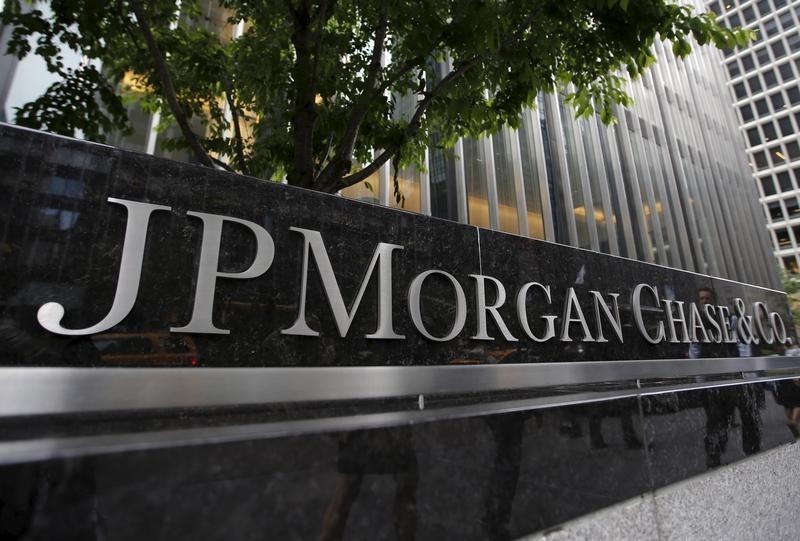By Sweta Singh and Richa Naidu
(Reuters) - JPMorgan Chase & Co (N:JPM), kicking off the second-quarter earnings season for U.S. banks, reported a stronger-than-expected rise in profit on Tuesday, helped by a drop in legal and restructuring expenses and a smaller tax bill.
Like other banks, the biggest U.S. lender by assets has been under pressure to cut costs because low interest rates have weighed on revenue for far longer than expected.
At the same time, regulators have demanded that banks hold more capital and hire additional staff to control risks and comply with new regulations.
JPMorgan's non-interest expenses fell 6 percent to $14.50 billion in the quarter, helped by efforts to streamline its business as well as lower legal and mortgage banking expenses.
Legal expenses fell 57 percent to $291 million.
The bank paid an effective tax rate of 25 percent, down from 30 percent in the same quarter last year, as its tax bill dropped 13 percent to $2.81 billion.
That helped net income attributable to common shareholders rise to $5.78 billion, or $1.54 per share, from $5.57 billion, or $1.46 per share, a year earlier.
Analysts on average had expected earnings of $1.44 per share, according to Thomson Reuters I/B/E/S.
But net revenue fell 3.2 percent to $24.53 billion, largely due to a fall in revenue from mortgage banking and fixed-income trading.
"Their beat was mainly driven by a lower-than-expected tax rate, and if you held their tax rate constant, the quarter is not as good as it looks," FBR analyst Paul Miller said.
JPMorgan's shares were up 1.1 percent at $68.85 in afternoon trading.
BOND MARKET DRAGS
Revenue from the bank's fixed-income business fell 21 percent to $2.93 billion. Adjusted for the sale of a physical commodities business and other changes, revenue from fixed-income trading would have fallen 10 percent.
Many banks are expected to report underwhelming bond trading results due to a downturn in bond trading markets in June.
Investor worries spanned the globe last quarter, ranging from the Greek debt crisis to concerns that the U.S. Federal Reserve would not be able to raise interest rates this year.
"The quarter was dominated by EMEA with a bond selloff and economic and political uncertainty, including Greece," Chief Financial Officer Marianne Lake said on a call with analysts.
"This uncertainty slowed the momentum we saw in the first quarter and kept clients on the sidelines in currencies and emerging markets."
JPMorgan said its return on tangible common equity, a key measure of profit performance, was unchanged from a year earlier at 14 percent. The company's longer-term target is 15 percent.
The bank's net interest margin, an important ingredient of profitability that is being closely watched in this quarter's bank reports, fell to 2.09 percent from 2.19 percent. Net interest margin represents the difference between a bank's cost of funds and the yields received from loans and securities.
Total assets stood at $2.45 trillion at the end of June, compared with $2.58 trillion at the end of March.
JPMorgan, the second largest U.S. mortgage lender after Wells Fargo & Co (N:WFC) according to Inside Mortgage Finance, said mortgage banking income fell 20 percent to $584 million.
The bank made $29.3 billion of home loans, an increase of 74 percent, but income was hit by intense competition.
Wells Fargo, which also reported on Tuesday, said its mortgage banking revenue fell 1 percent to $1.71 billion.

The bank's overall profit also fell for the second quarter in a row.